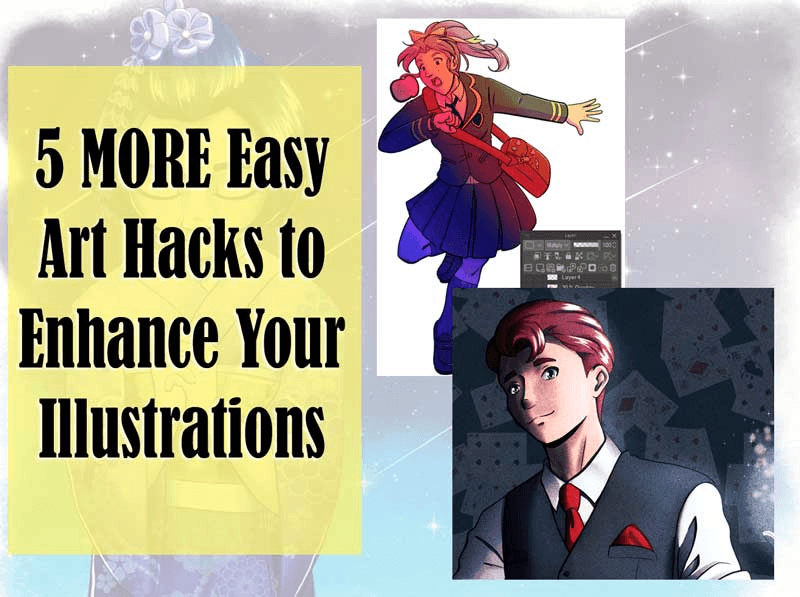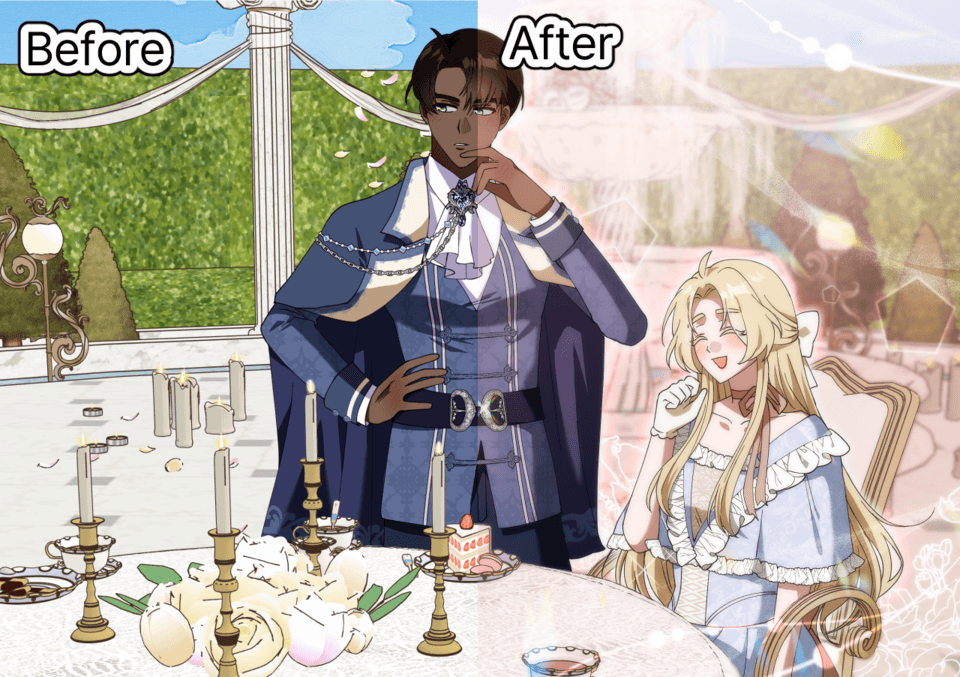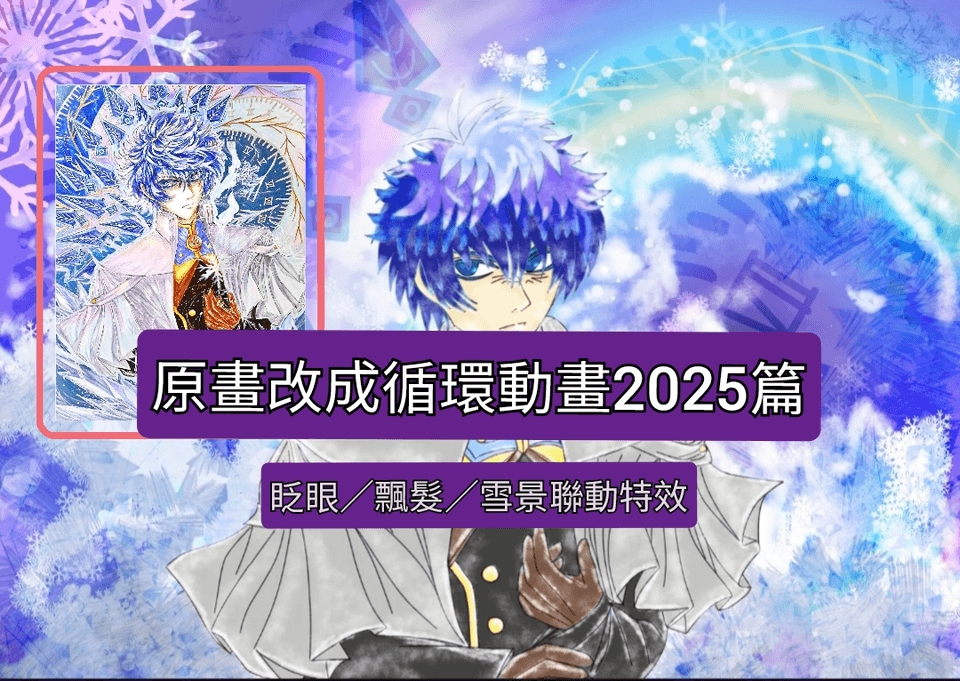Orientación de Luz y Sombra Simple con Clip Studio Paint
(perdonen por la presentación y la edición pero esta probando y pensando como hacer una presentación de video) pero bueno en caso de que seas principiante y no sabes como hacer un sombreado aunque sea lo mas sencillo este video es para ti, en solo 5 segundos (y a mi propio criterio y técnicas) podrás crear y manipular las sobras y la orientación de la luz con unos cuantos movimientos y de ahi en adelante desarrollarlos para hacerlos más complejos y realistas (por lo cual ya es decisión de mejorarlo)
por si se lo preguntan el entorno NO es una pared, solo lo hice para probar la sombra de atrás
espero que les funcione y en caso de no entender, dejen en los comentarios las dudas que los atenderé con gusto.
English Version:
(sorry for the presentation and editing but you are trying and thinking how to make a video presentation) but well in case you are a beginner and you don't know how to make a shading even if it is the simplest thing this video is for you, in just 5 minutos (and at my own discretion and techniques) you will be able to create and manipulate the shadows and the orientation of the light with a few movements and from then on develop them to make them more complex and realistic (for which it is already a decision to improve it)
in case you are wondering the environment is NOT a wall, I just did it to test the back shadow
I hope it works for you and if you don't understand, leave your doubts in the comments and I will gladly answer them.
1.- si piensas manejar una imagen png es recomendable que no tenga fondo (te explicaré el por que de esto más adelante) y si quieres que tenga fondo puedes hacerlo pero seria opcional para los pasos siguientes, las capturas de abajo te dan un mejor ejemplo.
English Version:
1.- If you plan to handle a png image, it is recommended that it not have a background (I will explain the reason for this later) and if you want it to have a background you can do it but it would be optional for the following steps, the screenshots below give you a better example.
2.- duplicaremos la capa de la imagen donde aparece la chica y a la capa duplicada la vamos a oscurecer con la herramienta Edición->Corrección Tonal->Brillo/Contraste
English Versión:
2.- We will duplicate the layer of the image where the girl appears and we will darken the duplicated layer with the Edit->Tonal Correction->Brightness/Contrast tool
y asi quedaría
english version:
and how it stays
3.- antes de pasar a la forma de las sombras, primero veremos las orientaciones básicas si aplicamos esta versión oscura por detrás de la imagen original para luego obtener estos resultados:
English version:
3.- Before moving on to the shape of the shadows, we will first see the basic orientations if we apply this dark version behind the original image and then obtain these results:
les juro que esto les puede servir para cuando haya un entorno con una pared y no saben en donde poner la dirección de la luz, pero es necesario también mejorar el concepto de las sombras para futuros dibujos, este es solo un concepto nivel básico
english version:
I swear that this can be useful for when there is an environment with a wall and you do not know where to put the direction of the light, but it is also necessary to improve the concept of shadows for future drawings, this is only a basic level concept
4.- para la composición de luz (usaremos el lado izquierdo como ejemplo) debemos poner la imagen de oscuro encima de la imagen original ligeramente hacia la derecha como punto de inicio, algo como esto:
english version:
4.- For the light composition (we will use the left side as an example) we must put the dark image on top of the original image slightly to the right as a starting point, something like this:
por si lo notan las líneas claras son muy notables aunque pasen casi desapercibidas
english version:
in case you notice the clear lines are very noticeable although they go almost unnoticed
5.- ahora que sabemos a donde queremos poner la luz, finalmente usaremos la herramienta "Degradado" para el efecto de foco (específicamente de cuadro o circular)
english version:
5.- Now that we know where we want to put the light, finally we will use the "Gradient" tool for the focus effect (specifically square or circular)
pero antes de ponerlos hay que asegurarnos de que no estén en la misma capa que las otras, por lo que hay que hacer 2 capas, una de a cuadro y otra circular
english version:
but before putting them you have to make sure that they are not on the same layer as the others, so you have to make 2 layers, one square and one circular
6.- para "Capa 2" aparte de poner el degradado cuadrado, debemos hacer un modo de combinación "Multiplicación"
english version:
6.- for "Layer 2" apart from putting the square gradient, we must make a combination mode "Multiplication"
y asi queda:
english version:
and how it is stayed:
7.- crearemos el mismo proceso pero con la circular y sin multiplicar
english version:
7.- We will create the same process but with the circular and without multiplying
oh si se lo preguntan se me olvidó decirles que deben bajar la opacidad a la capa oscura
english version:
oh if you're wondering i forgot to tell you to lower the opacity on the dark layer
8.- para terminar borraremos las partes en donde hay que dejar pasar la luz y dejar la sombra detrás, pero también es indispensable fijarse en las arrugas y la ubicación de las partes del cuerpo.
english version:
8.- To finish we will erase the parts where we have to let the light pass and leave the shadow behind, but it is also essential to look at the wrinkles and the location of the body parts.
y así como se muestra en la parte de arriba el borrador tiene que quedar como un tipo de spray para mayor textura.
bueno eso es todo, esto apenas es el inicio de un montón de tutoriales de texturas de sombras/luz
buenas para todos!
english version:
and as shown above, the eraser has to be like a type of spray for more texture.
well that's it, this is just the start of a lot of shadow/light texture tutorials
good for everyone!
if you want to check the tutorial, here's the video of Youtube
























Kommentar